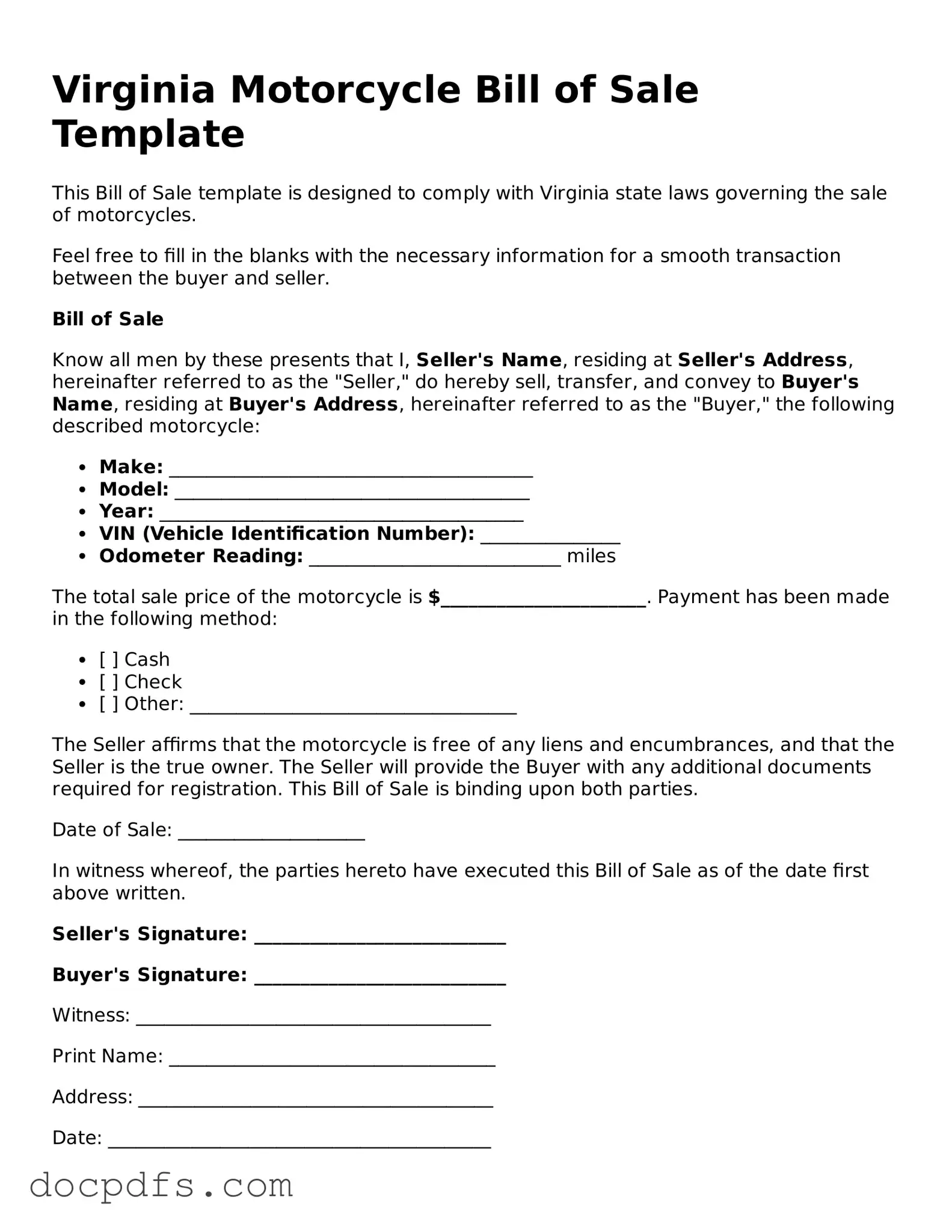What is a Virginia Motorcycle Bill of Sale?
A Virginia Motorcycle Bill of Sale is a legal document that serves as proof of the sale or transfer of ownership of a motorcycle. This document includes essential details such as the names of the buyer and seller, the motorcycle's make, model, year, Vehicle Identification Number (VIN), and the sale price. It protects both parties by providing a record of the transaction.
Why do I need a Bill of Sale for my motorcycle?
A Bill of Sale is important for several reasons:
-
It provides legal proof of ownership transfer.
-
It can be used for registration and titling purposes with the Virginia Department of Motor Vehicles (DMV).
-
It protects both the buyer and seller in case of disputes regarding the sale.
Is a Bill of Sale required in Virginia?
While a Bill of Sale is not legally required for every motorcycle transaction in Virginia, it is highly recommended. The DMV does require a Bill of Sale for certain situations, such as when the motorcycle is purchased from a private seller or when there is no title available. Having this document can simplify the registration process and provide clarity in ownership.
A comprehensive Bill of Sale should include the following information:
-
Full names and addresses of the buyer and seller.
-
Details of the motorcycle, including make, model, year, and VIN.
-
Sale price of the motorcycle.
-
Date of the transaction.
-
Signatures of both the buyer and seller.
Can I create my own Bill of Sale?
Yes, you can create your own Bill of Sale. However, it is crucial to ensure that it contains all the necessary information to be legally binding. Many templates are available online, but make sure to customize them to fit the specifics of your transaction. Alternatively, you can obtain a standard Bill of Sale form from the Virginia DMV.
What if I lose my Bill of Sale?
If you lose your Bill of Sale, it can be challenging, but not impossible, to resolve the situation. You may need to contact the seller to request a duplicate. If that is not possible, you can provide other documentation that proves ownership, such as registration documents or receipts. It is always best to keep a copy of important documents in a safe place.
Where can I submit the Bill of Sale?
After completing the Bill of Sale, the buyer should submit it to the Virginia DMV when registering the motorcycle. This document is typically required along with the title and other registration forms. Make sure to check the DMV's website or contact them directly for any specific submission guidelines or additional requirements.

